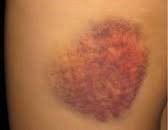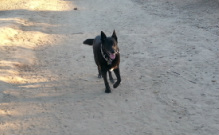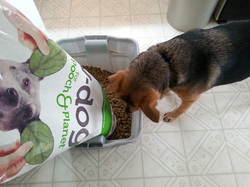
A bruise, or contusion, occurs when a blunt impact causes the capillaries (small blood vessels) near the surface of your skin to break, and the blood leaks into surrounding tissue, which turns your skin a dark bluish- to blackish-purple color. The blood is eventually reabsorbed within a few days and the color fades back to normal.
Two things that contribute to how easily you bruise include the strength of your capillaries and how well your blood clots. Weaker capillaries rupture more easily upon impact to the skin; stronger capillaries can take more impact before rupturing. And the better your blood can clot, the quicker it will block fresh blood from leaking into surrounding tissue, reducing the amount of bruising. In the case of bruising, think of clotting as a shut-off valve for blood flowing out of the broken capillaries.
So what does this have to do with diet? As you can probably guess, there are foods that strengthen your capillaries and foods that help your blood clot normally.
Your body needs vitamin C to produce collagen, a protein that strengthens tissues, including blood vessels and capillaries. Lack of vitamin C in your diet leads to increased bruising. Guavas, sweet bell peppers, dark green leafy vegetables, and kiwi fruit are exceptionally high in vitamin C. Other foods that are rich in vitamin C include citrus fruits (oranges, limes), broccoli, strawberries, and tomatoes.
Your body needs vitamin K for normal blood clotting. Lack of vitamin K in your diet results in increased bruising and bleeding. Dark green leafy green vegetables are exceptionally high in vitamin K. other foods that are rich in vitamin K include herbs, broccoli, cabbage, Brussels sprouts, asparagus, and many other vegetables.
Some foods are rich in both vitamins C and K, and the clear winner is kale, with 120 milligrams vitamin C and 705 micrograms vitamin K per 100 grams. Other foods that are rich in both include Brussels sprouts, broccoli, watercress, kiwi fruit, and the spices cayenne pepper and chile powder.
Consuming plenty of these and other vegetables and fruits will assure that you are getting plenty of vitamins C & K in your diet and will help reduce bruising.
A few weeks ago I slammed my arm into the handle of the deadbolt lock on my front door. Ouch! It was painful and I fully expected that I would have a nice, big, dark bruise on my arm. The next day I noticed my arm when I brushed it against something, which reminded me to look for the bruise. But there was no bruise! And no bruise ever did appear.
My whole food plant-based diet is rich in all the foods mentioned above plus many more fruits and vegetables. It must be working because I no longer experience random, unexplained bruising.
Resources
- http://www.healwithfood.org/bruises/
- http://www.livestrong.com/article/457940-can-poor-diet-cause-easy-bruising/
- http://en.wikipedia.org/wiki/Bruise
- http://ndb.nal.usda.gov/ndb/foods
- http://www.healthaliciousness.com/articles/vitamin-C.php
- http://www.healthaliciousness.com/articles/food-sources-of-vitamin-k.php






 RSS Feed
RSS Feed